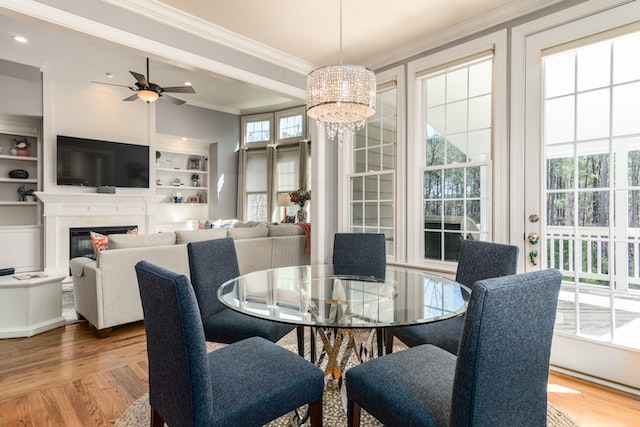Whether you’re trying to buy your first home or are a self-proclaimed home-buying pro, there are certain questions to consider before taking the leap and signing on the dotted line to own that new place.
Buying a home comes with a lot of important and necessary steps. From getting a formal pre-approval to packing up your old spot and redesigning a new home, it’s a lot of work.
There are some things in life too exciting to ask questions about (like whether you should have dessert before dinner), but homebuying is not one of those things.
Knowledge is power in the real estate world. Knowing what you should plan for, what expenses to expect, and exactly how to pick out the home of your dreams within budget comes with planning.
The good news is that’s where experienced realtors come in. Once you’ve clicked with a realtor and decided to use them for your home search and purchase, don’t think the process of getting to know them and the process is over. In fact, it’s just beginning.
While I am here to help you and answer any questions you may have along the way, there are some frequently asked questions that I wanted to share some answers with you on to get you started on the right foot.
Let’s explore 10 of the most frequently asked questions from potential buyers.
- Should I spend my entire budget and aim to hit my maximum approval amount?
When it comes to spending power, most lenders advise you to spend no more than 28% of your total gross monthly income on a mortgage.
When you receive your formal preapproval, the 28% rule is often used to determine your maximum purchase price.
While I don’t think spending at the top end of your budget and preapproval amount is necessary, it’s okay to do so. You will never be over-approved for an amount you cannot borrow. It is always a good idea to come up with a target amount that feels comfortable for you while also staying in your preapproval range. This helps narrow your search while feeling most comfortable in your final decision.
Pro tip: If you want to hit the top-end of your budget, write out a full expense sheet that would include all home costs at the top of your budget and determine if you can afford it. If so, go for it. If not, find a safer middle ground. Remember that outside of just the mortgage payment, be sure to include room for homeowners insurance, property taxes, renovation costs (if applicable), and overall monthly upkeep.
If the final calculation is higher than you’d like, consider opting for a less expensive home that still meets your needs.
- Why did the seller decide to sell?
Although this may not feel like a “must-ask,” it can be pretty telling about the home and neighborhood that you may plant your roots in.
Although a seller doesn’t have to legally disclose why they’re selling their property, most are open to doing so, especially if they feel comfortable with the team and want someone else to enjoy the house they’ve made a home for years.
Knowing why they are leaving also helps buyers and realtors tailor their offer to fit the seller’s needs more openly.
For example, they may be relocating for a new job which often means they’re a motivated seller who wants to move quickly.
- Aside from the actual home, what’s included in the sale of this property?
In most states, Massachusetts included, the basics are included in the home sale.
This includes all stationary fixtures like lights, blinds, faucets, and cabinetry.Sellers can decide to include additional items such as appliances, washers and dryers, playground equipment, or even furniture.
Knowing what’s included in the purchase price ahead of time allows you to plan out your budget more effectively.
- The interior is brand-new, but how old is the roof?
A room is an essential part of a home. Coming in at a hefty price tag to repair and replace, it’s important to understand just how old a roof is on your potential home.
If a roof is older and not something you can or want to replace early into your home ownership journey, you may be able to negotiate for a lower purchase price or ask the seller to replace the roof as part of the purchase agreement.
In rare conditions, if the roof is in poor shape, the lender may require replacement by the seller before approving the final loan.
- I love the house, but can you tell me about the neighborhood?
Your neighborhood is almost as important as your home– especially if you’re moving to a new area you’re unfamiliar with.
Remember that your realtor should be an area-based expert with deep knowledge of the neighborhood and surrounding areas so that they can provide you with all the details you need on your potential new residence.
When discussing neighborhoods, ask questions about things like:
- Schools
- Parks
- Amenities
- Nightlife
- Popular local shops and restaurants
- Crime rates
- Resale values
- Is this home price comparable to others sold recently in this neighborhood?
This is one of the most important questions potential buyers can ask.
Knowing what other similar homes recently sold for in the area helps you better tailor your offer to meet your needs without being higher or lower than neighborhood comps.
If the home you’re considering is listed a lot higher or lower than comparable homes, ask for more insight about the difference in pricing.
- How long has this home been on the market?
Although a home that sits on the market for a long time can come off as a red flag for some, it may be a good opportunity for a motivated buyer to work with a motivated seller.
Knowing the length of time that your potential home has been on the market allows you to make an offer that suits the needs of both parties involved.
A home is most likely to sit on the market longer than others due to many factors, including:
- List price
- Buyer requirements
- Structural issues
- Cosmetic problems
In some instances, a home on the market for an extended period can mean that the market is slower than surrounding areas.
- Did the seller let you in on any issues?
At the time of listing, sellers must disclose a list of issues associated with the home before their putting their home on the market is complete.
In some instances, sellers neglect to include all issues or glide over bigger issues to avoid the negative implications and costs that could come from them being out in the open.
My solution is simple. While asking about the issues is a great first step, the best way to address all home-related problems before closing is to get a home inspection done.
- Can we pick our closing date?
The short answer is yes, but it could come with some implications.
Unless you’re paying full cash for your home, we encourage you to stick to the standard closing timeframe of 30 to 45 days to allow enough time to process all aspects of home closing properly.
It is also important to note that home interest is prorated from the date you close to the last day of the month, so you will pay less if you close near month’s end.
Pro tip: Work with your realtor to align your closing date with other important dates in your life and budget, especially your move-out date from your current place of residence.
- Do I pay closing costs? If so, how much are they?
The short answer is most likely.
Although some buyers get their closing costs covered by the sellers, it’s not as often as many think, so planning to pay some closing costs is vital to your overall home purchase budget.
Pro tip: It is a good rule of thumb to plan to pay 2% to 5% of the home’s total cost in closing costs.
Work with your lender to determine the exact closing costs you’ll need to pay based on the terms of your home purchase agreement.
It is important to remember that everyone’s home-buying experience is unique.
My biggest advice is this: Ask questions and ask them frequently. Go beyond the standard “how big is this home?” “is it in a good school district?” and “how much does it cost?” questions and delve into bigger and more detailed questions– it matters.
While not all of these FAQs may apply to you, come up with a list of questions that apply to your needs, wants, and homeownership goals. Need help navigating the home-buying process this year? I can help! Contact me today to get started on your homeownership journey.


